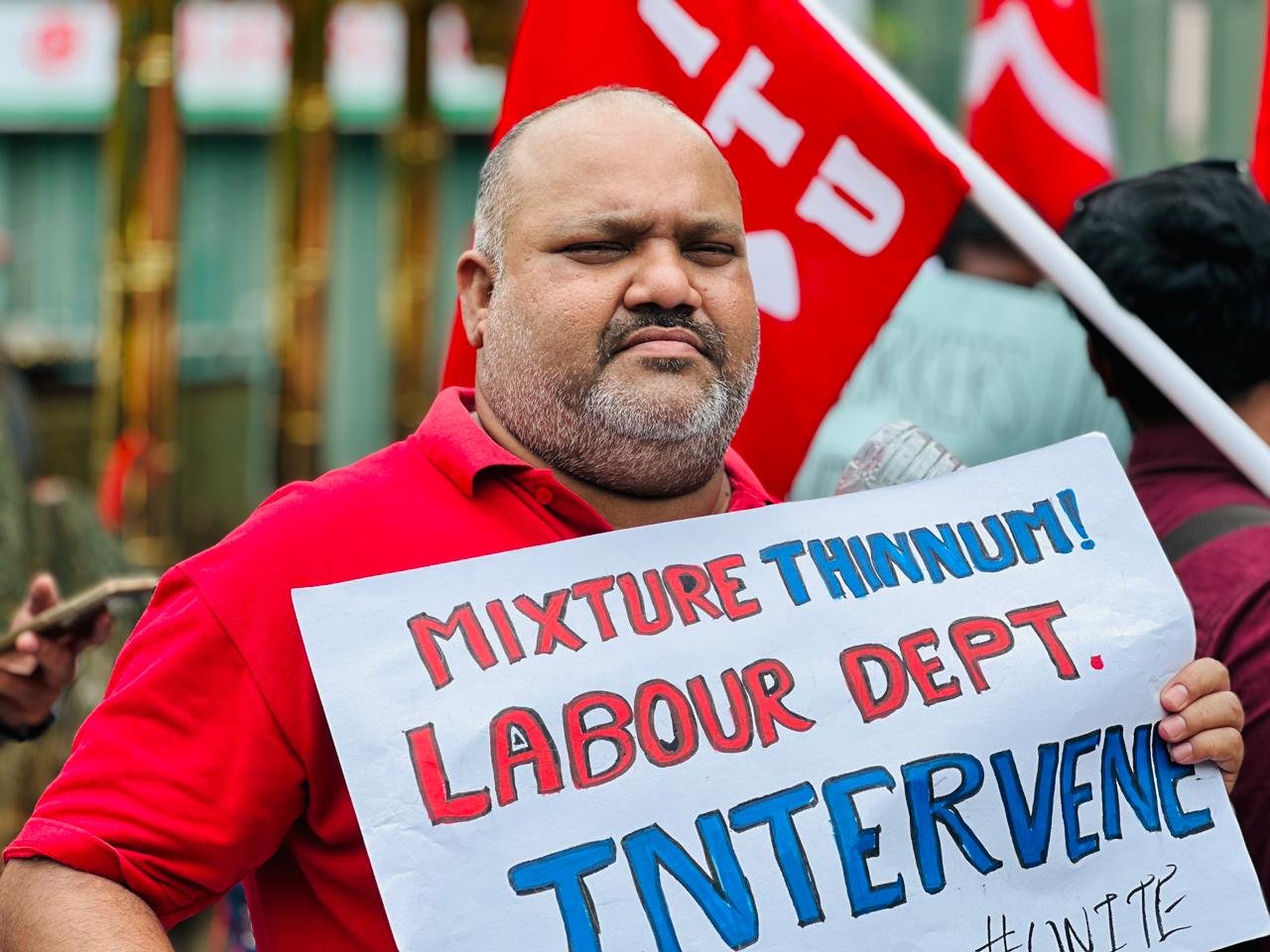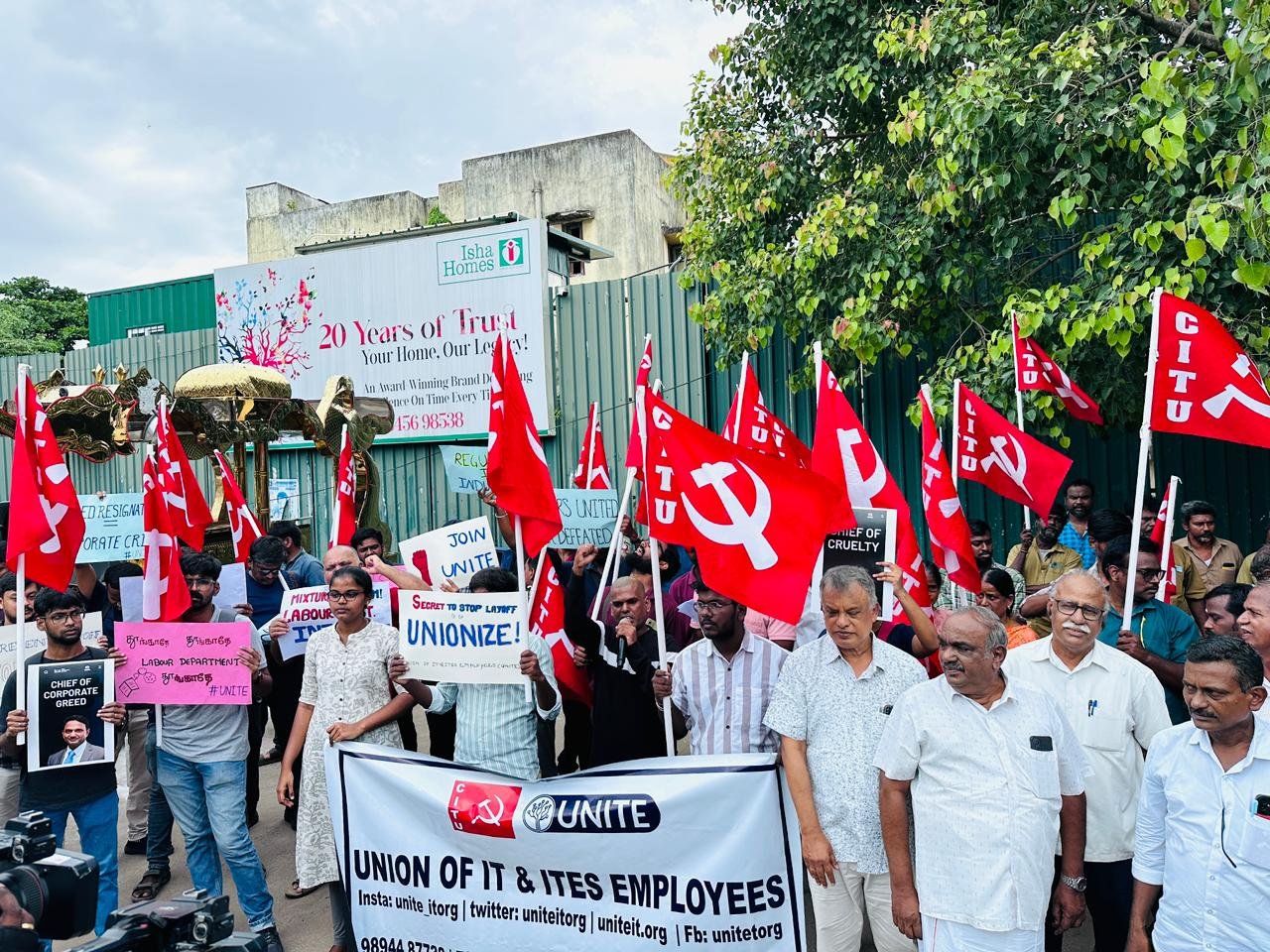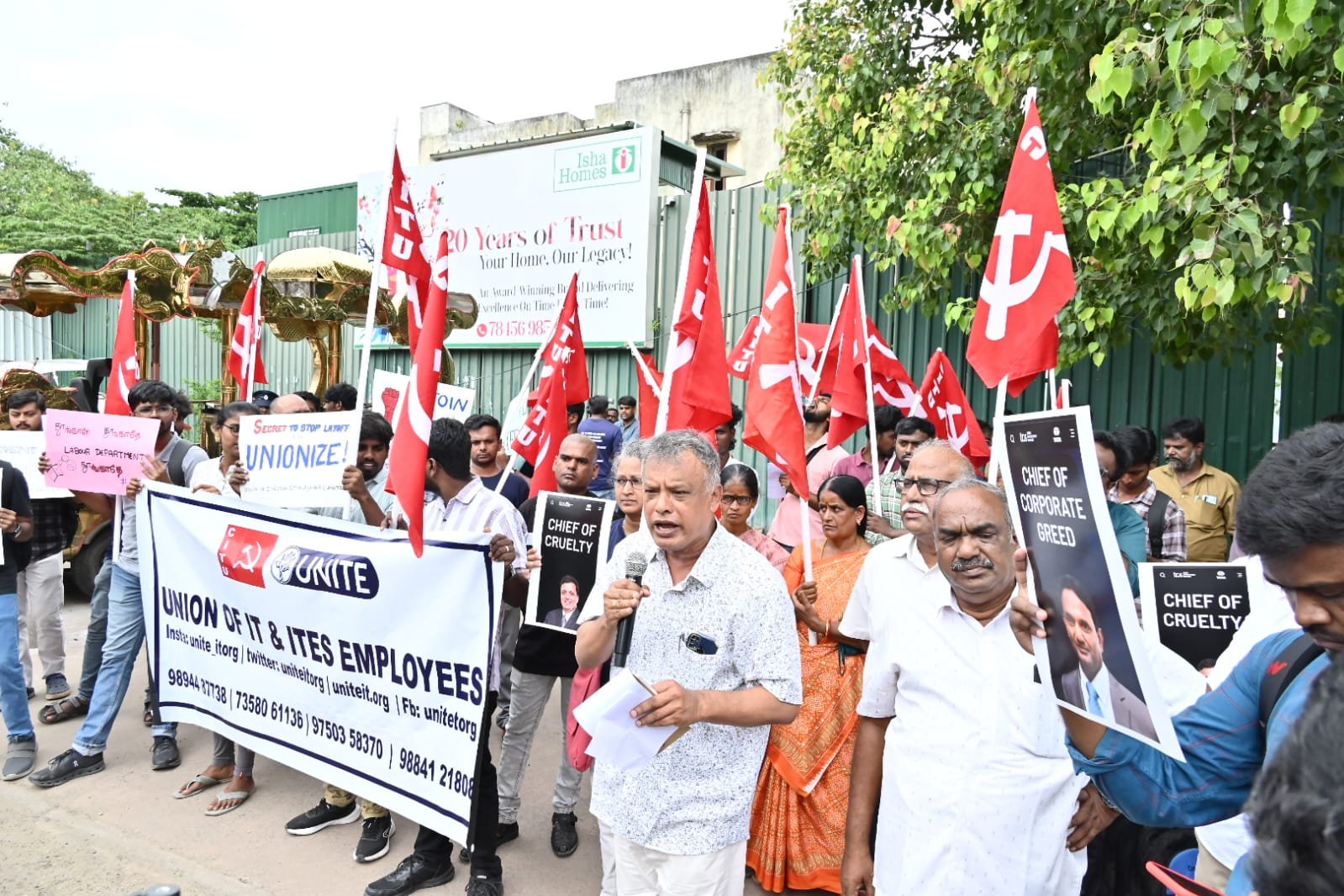A wave of anxiety is sweeping across India’s robust IT sector as protests have erupted in Chennai against alleged mass terminations at the country’s largest IT services firm, Tata Consultancy Services (TCS). The recent TCS Layoffs Spark Protests on the ground, fueled by claims from an employees’ union that up to 40,000 jobs could be on the line. This development, coming on the heels of similar job cuts at Oracle, has ignited a fierce debate about job security and corporate ethics within the multi-billion-dollar industry.
The situation is trending as it presents two starkly conflicting narratives. On one side, the Union of IT and ITES Employees (UNITE) alleges a massive, profit-driven “silent layoff” of experienced employees. On the other, TCS has vehemently denied these claims, calling the reports “incorrect and misleading” and stating the impact is minimal. This article delves deep into the claims and counterclaims, the context of the protests, and the potential impact on India’s vast IT workforce.
The Core Conflict: Union Claims vs. TCS Response
The heart of the issue lies in the vast discrepancy between the numbers being reported by the employees’ union and the official statement from the company. This gap in information is a primary driver of the ongoing protests and workforce anxiety.

UNITE’s Alarming Allegations
The Union of IT and ITES Employees (UNITE), which is leading the protests in Chennai, has made several serious claims:
- Massive Job Cuts: The union alleges that the company is planning to cut between 30,000 to 40,000 jobs.
- Targeting Senior Employees: They claim that at least 12,000 mid-level and senior-level employees have already been terminated without any prior notice.
- Profit-Driven Motive: The union’s central argument is that this is not a performance-based exercise but a cost-cutting measure to replace higher-paid, experienced professionals with freshers at much lower salaries, thereby boosting profit margins.
TCS’s Official Rebuttal
In response to these allegations, TCS has issued a strong statement to quell the rising panic.
- Reports are “Misleading”: The company has labeled the union’s claims and subsequent media reports as “incorrect and misleading.”
- Minimal Impact: TCS asserts that the number of employees affected is limited to just 2% of their total workforce.
- Routine Restructuring: The company frames the move as a part of a routine operational restructuring and emphasizes its commitment to reskilling and upskilling its employees.
The conflicting narratives surrounding why the TCS Layoffs Spark Protests have left many employees in a state of uncertainty. This situation is being closely watched by business analysts, as covered by major financial news outlets like The Economic Times.
Broader Industry Context: A Growing Fear
The protests against TCS are not happening in isolation. They are part of a larger, more unsettling trend in the Indian IT sector, which has been grappling with global economic headwinds and a shift in technological demands. The recent layoffs at Oracle India served as a precursor, sparking a wider conversation about the stability of IT jobs that were once considered completely secure.

This has created an environment of unease, particularly among senior and mid-level employees who have dedicated years to their companies. According to the original report by IndiaTV News, this trend is causing significant distress among a large segment of India’s highly skilled workforce. The rise of AI and automation is also a contributing factor, forcing companies to restructure their talent pool to stay competitive.
Why the “Silent Layoff” Tactic Causes Anger
One of the key reasons the TCS Layoffs Spark Protests is the alleged method of termination. The term “silent layoff” or “quiet firing” refers to a practice where a company creates conditions that encourage an employee to resign, or terminates them without making a large public announcement. The union alleges that thousands of employees were let go without any formal notice, which they argue is an unethical practice for a company of TCS’s stature.

This method avoids the negative publicity and potential legal obligations associated with a formal, large-scale layoff announcement. However, it also fosters a culture of fear and uncertainty among the remaining employees, which can damage morale and productivity. The role of employee unions like UNITE becomes crucial in such scenarios, as they provide a platform for affected workers to voice their grievances collectively.
Conclusion: A Crossroads for the Indian IT Sector
The protests against TCS represent a critical juncture for the Indian IT industry. The situation highlights the growing tension between corporate profitability and employee welfare in an era of rapid technological change. While TCS maintains that its actions are a minor, necessary part of business evolution, the scale of the union’s claims and the on-ground protests suggest a deeper issue of employee distrust.
#TCSLayoffs: Union of IT and ITES employees protests against 12,000 job cuts
(@scribeJocelyn reports)https://t.co/0Kmpbq0xG2— Mint (@livemint) August 20, 2025
The outcome of this conflict will be significant. It could set a precedent for how major IT corporations handle workforce restructuring in the future and may empower IT sector unions to play a more prominent role in protecting employee rights. For now, the thousands of professionals whose jobs are uncertain are left waiting, hoping for clarity and a fair resolution in a sector that has long been the backbone of India’s economy.
For any questions or feedback, feel free to reach out via our Contact Page.
Sources:
- IndiaTV News: After Oracle, TCS layoffs spark protests in Chennai
- The Economic Times (for IT sector context)
- Livemint (for business news analysis)
- NASSCOM (for industry reports)